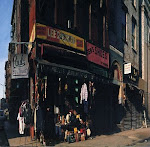
I have sometimes wondered if descendants of slave owners write better books than descendants of slaves because the guilt in these men and women forces them to be three dimensional. Of course this is not always true, all the existential guilt of Conrad still resulted in racism in Heart of Darkness and the grievous issues brimming against her tongue did not stop Toni Morrison from writing Song of Solomon, a novel that showed that victims can be villains too.
In this realm is the truly daring Middle Passage, a novel whose time period defuses what it actually is. The novel not only dares to marry the classic ship voyage with the horrors of slavery but throws moral indignation aside and forces us to make our own conclusions. The fact that these men are in fact dealing with human cargo does not detract from us being riveted by their lives or liking and hating them as the story rolls on.
But Johnson, not content to let character or reader off the hook with a sea yarn, works the fact of slavery into the novel anyway and exposes motives and hearts that may stun the reader. It’s not every white reader who is ready to deal with a richly complex and sometimes principled Commander who also happens to sodomise the cabin boy, nor is every black reader ready to confront the fact of black complicity in the slave trade and Africa’s own perplexity that such a thing would be abolished. That he gets away with it is testimony to the rollicking, flawless prose that transports and changes the reader as well.
In novel, Rutherford Calhoun, a freed black man living by his wits in New Orleans, stows away on his ship to escape loan sharks and a forced marriage. Little does he know that this ship, the Republic (haha) is a slaver bound for Africa to trade illegally in human cargo (The Slave Trade was outlawed in 1807). Led by a mysterious and dangerous Commander and a crew of degenerates, the Republic takes on the last remnants of a mystical African tribe and a mysterious cargo to transport across the Atlantic, the ‘Middle Passage’ of the title. But more that a voyage of ship and cargo, the novel is a voyage of discovery, self discovery for Calhoun but also a discovery of all that is worthy or abominable about human nature. It’s also funny as hell.
Now that I am writing fiction set in the past, I’ve had to reach the point of putting down the encyclopedia to write as if I was there. Reading books of the time like Pride and Prejudice is useful, but contemporary fiction about that time may be even more so because it allows for a contemporary perspective, one that Jean Rhys had but Charlotte Bronte would not. I think, this contemporary perspective, this simultaneously deeply inward and expansively outward viewpoint, separates a novel set in the past from historical fiction. This is why Ivanhoe is historical fiction, but Wide Sargasso Sea is not. The past is the setting, but not the point. I have no interest in writing historical fiction either and I surrounded myself with books that made this difference.
The Middle Passage, and the similar Rite of Passage by William Golding transported me to that world and gave me the footing to write from it. There aren’t many novels about West Indian slavery, certainly not many great ones, but there are lots about the speech, bearing and conduct of the people of the time, something both books capture perfectly. Both books, and even Moby Dick before them, throw different peoples and ethnicities together and the result is a wonderful display of the possibilities of language.
Not being from that era, it’s easy to become entrapped by language, to be so lost in structure and grammar that one’s prose never moves. Charles Johnson never falls into this trap and neither does William Golding or Toni Morrison for that matter. In that way, their novels are (for me) as much research texts and they are works of fiction. I read them to unlock clues of speech, to learn the languages instead of copying them. I have a feeling that these writers did the same thing. I’m not striving for complete accuracy with my dialogue but I do want the sense of time and place to be reflected in it.
The Middle Passage gives me a sense of time and place without ever falling into the “historical fiction” tag. It reminds me that language was more musical and less short winded then and people were very big on saying one thing and meaning another. Also it reminds me not to fall into the slave traps that befall the black writer, some of which I had already fallen into before I read the novel.
Before Middle Passage, all my white characters were evil and all the black good. Before Middle Passage, all my white characters were believers in or complicit to slavery and all my black characters were not. Before Middle passage I had used the colour line to draw wickedness and brutality from humanity and suffering. Johnson, with a wink and a slap reminds me that it ain’t as black and white as that.
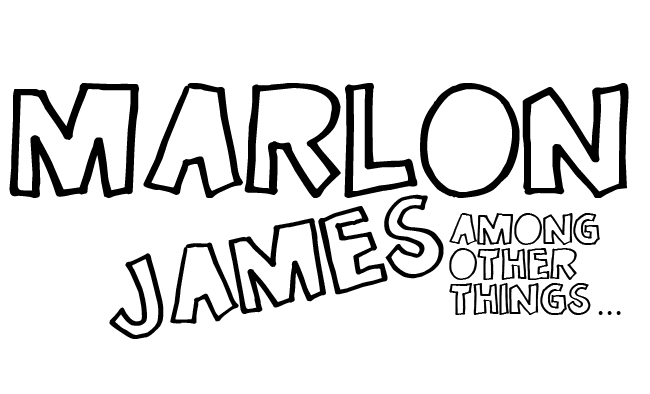


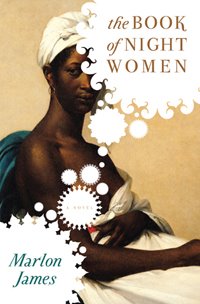



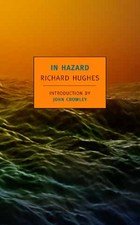
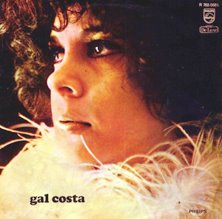-image007.jpg)
